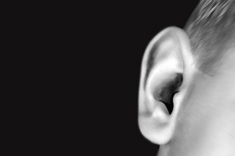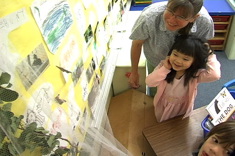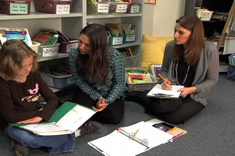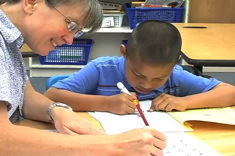Being an active listener is hard for some of us. It would be great if we were all genetically programmed to not plan what we are going to say as we watch the lips of the person we are hearing but not really listening to. I do believe there are differences between hearing and listening—hearing is about the noise and listening is about the meaning. I want to be the instructional leader and coach who listens well to the teachers I support and collaborate with, so I have made becoming a better listener a professional goal.
It’s been an uphill battle for me to perfect listening, and a battle that is not over. Very often when teachers come to me, it’s on the fly or they are in the midst of a crisis—the aura wafting around them is one of urgency to have the answer they need. What I force myself to remember is that some of the most beneficial professional growth does not come from me having all of the answers, but from teachers discovering their own solutions. A friend of mine told me that being a successful coach and mentor is not about having all the answers, but about asking the right questions. That advice has stuck with me through the years. I have also learned that there are times when teachers rush to me to vent and are not interested in what I have to say. As humans we feel compelled to respond, so out of habit I contribute when I really don’t need to.
The following technique has helped me become a better listener this year. When a teacher flies into my office or grabs me in a rush in the hallway and asks if I have a minute or tells me they need to talk to me, I ask them what they need my role to be in the conversation. Do they want a listener, or a listener with contributions? I might say something like, “Okay, before you get too far, do you need me to just listen, or is there something specific you are hoping I will say when you finish?” “Do you just need me to listen, or are you hoping I have an answer?” “Is there something specific you need me to listen for?” Too often we talk with teachers and run the risk of miscommunicating or steering them in a direction they may not need to go because we assume what our role is in the conversation. Always taking on the role of fixer and problem solver will make being an active listener more challenging. Some other advice for building listening skills:
- Listen like you are wrong. The friend who told me that I don’t need to have all the answers is also the one who reminds me to listen like I might be wrong. This helps a listener see alternative views.
- Accept that coaching conversations and dialogue can be filled with emotion. Teachers need to know that I truly want to hear what they have to say no matter how much their feelings and thinking may be different from my own. I need to accept, listen, and coach them from where they are, not where I wish they were.
- Try to avoid saying something just to hear yourself in the conversation. No matter the sense of urgency a teacher comes to you with, it is okay to ask them if you can get back to them after you have had time to think about and process what they have shared with you.
My discussions with teachers have been transformed this year by explicitly negotiating my role in conversations. Simply asking what a teacher needs from me in a conversation focuses my listening so I can not only hear the words, but understand the meaning behind what they are sharing with me.









